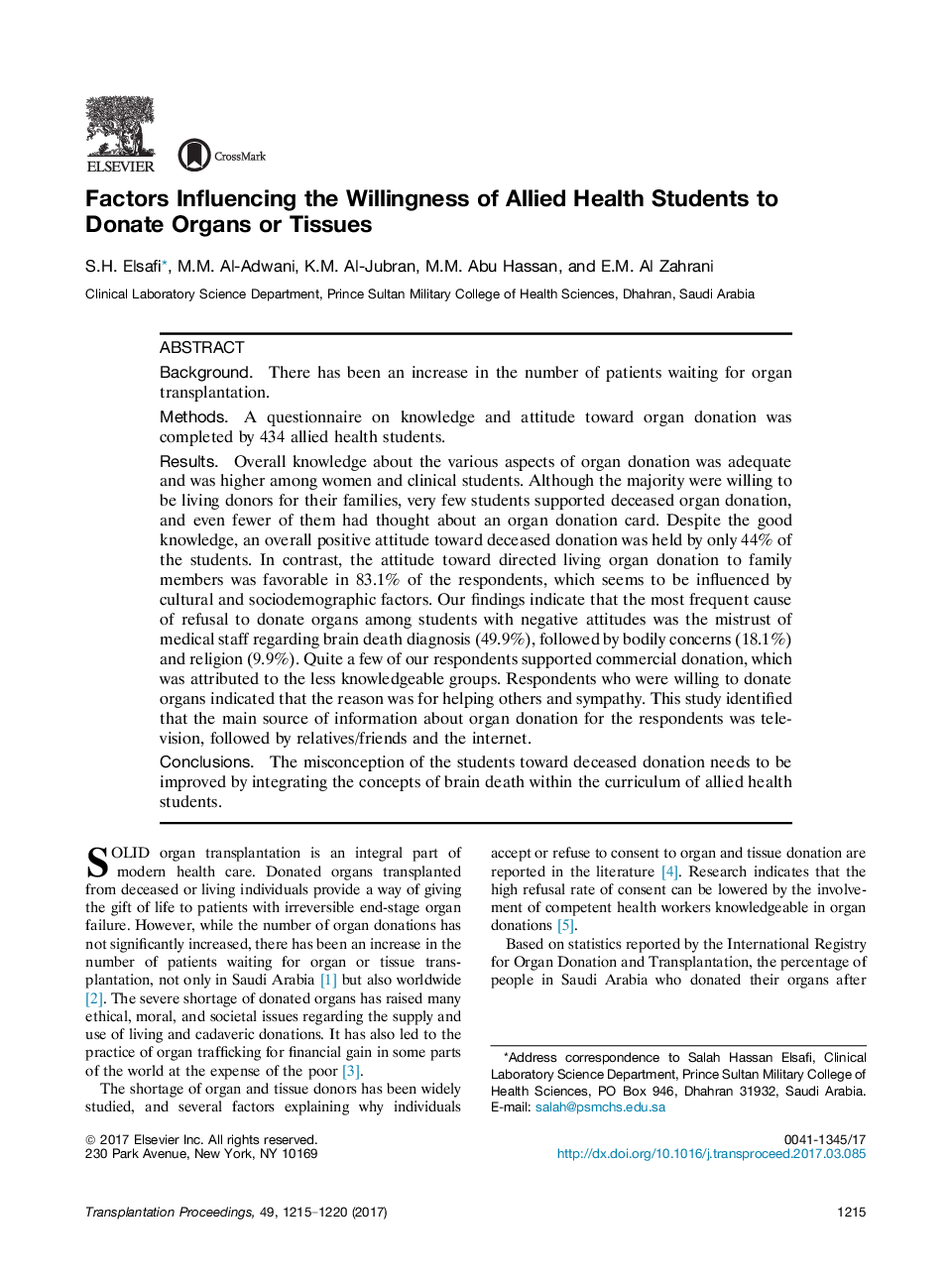| Article ID | Journal | Published Year | Pages | File Type |
|---|---|---|---|---|
| 5728670 | Transplantation Proceedings | 2017 | 6 Pages |
â¢Despite the good knowledge demonstrated by our respondents, overall positive attitude toward deceased donation was poor among the students. In contrast, the attitude toward directed living organ donation to family members was favorable in most of the respondents.â¢Our results demonstrated that knowledge and attitude were only poorly correlated. The acceptance of living organ donation is mainly influenced by cultural factors and sociodemographic differences rather than knowledge alone.â¢The women's attitude toward organ donation was better than the men's. The clinical students had a better attitude than the 1st-year students. The difference in knowledge within the academic year had resulted in an improved positive attitude.â¢The results of this study pointed out an important issue that the poor attitude toward deceased organ donation was due to lack of confidence in the health care system, followed by bodily concerns. This misconception may be improved by integrating the concepts of brain death within the curriculum of allied health students.
BackgroundThere has been an increase in the number of patients waiting for organ transplantation.MethodsA questionnaire on knowledge and attitude toward organ donation was completed by 434 allied health students.ResultsOverall knowledge about the various aspects of organ donation was adequate and was higher among women and clinical students. Although the majority were willing to be living donors for their families, very few students supported deceased organ donation, and even fewer of them had thought about an organ donation card. Despite the good knowledge, an overall positive attitude toward deceased donation was held by only 44% of the students. In contrast, the attitude toward directed living organ donation to family members was favorable in 83.1% of the respondents, which seems to be influenced by cultural and sociodemographic factors. Our findings indicate that the most frequent cause of refusal to donate organs among students with negative attitudes was the mistrust of medical staff regarding brain death diagnosis (49.9%), followed by bodily concerns (18.1%) and religion (9.9%). Quite a few of our respondents supported commercial donation, which was attributed to the less knowledgeable groups. Respondents who were willing to donate organs indicated that the reason was for helping others and sympathy. This study identified that the main source of information about organ donation for the respondents was television, followed by relatives/friends and the internet.ConclusionsThe misconception of the students toward deceased donation needs to be improved by integrating the concepts of brain death within the curriculum of allied health students.
